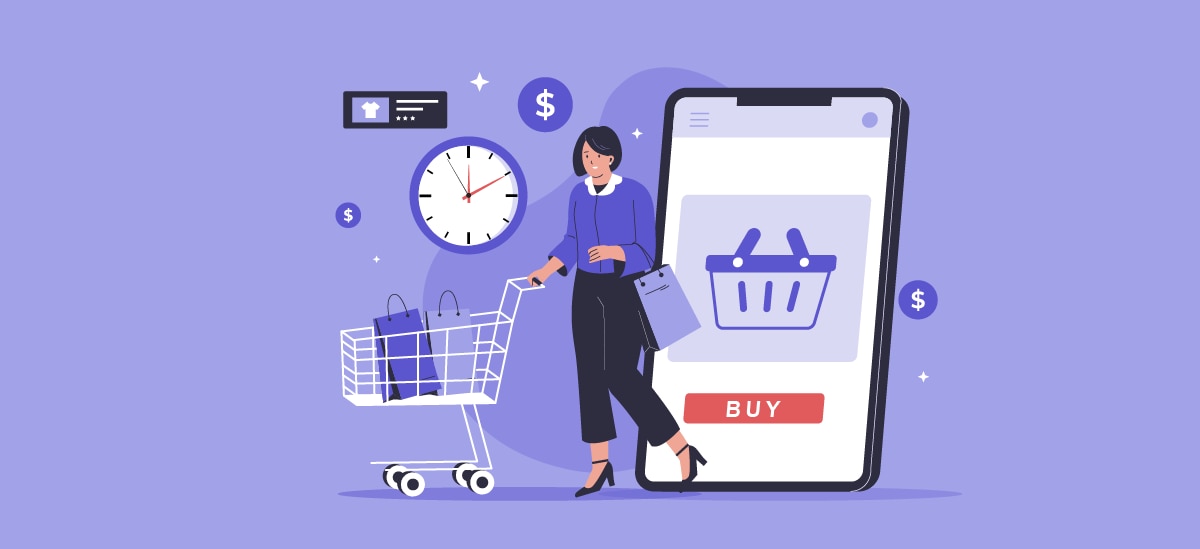
- Buy now, pay later (BNPL) is becoming increasingly popular among millennials and Gen Z consumers who are buying high-ticket items.
- A pay-later service can boost retail sales by an average of 20%.
- The main downside to consider is the potential impact of BNPL on your customers' financial well-being.
Have you considered offering your customers a buy now, pay later option? These payment options are becoming more popular, especially with younger customers. Partnering with a BNPL service can increase your sales and help you land new customers. But there are some disadvantages as well, from both financial and ethical points of view. It’s important to have all the facts before you make a decision.
The Rise of Buy Now Pay Later
According to the Federal Reserve, “As of fall 2023, 14 percent of adults had used BNPL in the prior 12 months, up from 12 percent in 2022 and 10 percent in 2021.”[1]
Here are some interesting facts about BNPL shoppers:
- Forty-five percent of BNPL users said they used these services to make purchases that otherwise wouldn’t fit into their budget.
- Millennial and Gen Z shoppers make up around 70% of BNPL users.
- About 30% of BNPL service users are Gen X and baby boomers.[2]
How To Know if BNPL Is Right for Your Retail Business?
Does that mean your business should jump into the BNPL movement with both feet? It depends on your needs and your customers' needs. There are advantages and drawbacks to partnering with a BNPL provider.
Benefits of BNPL for Your Business
There are several advantages to offering a pay-later option. However, as we'll see in the next section, some of these benefits translate directly into disadvantages when viewed through a customer experience lens.
- Boost sales: Retailers who offer BNPL increase their sales by an average of 20%.[3]
- Appeal to new customers: Younger demographics and people who don’t qualify for traditional credit cards are more likely to shop for high-ticket items if, at checkout, they can choose to pay in installments over time.
- Increase average orders: Payment plans help shoppers overcome hesitation when they’ve overfilled their carts.
Reasons BNPL Might Not be Right for Your Business
Before you decide to embrace BNPL, there are several potential downsides to consider.
Your Customer Experience
The same features of BNPL that make it attractive to businesses can have a negative impact on your customers.
Since BNPL offers payment plans to shoppers who might not qualify for traditional credit, there's a higher chance of your customers becoming overextended and running into serious financial problems — which they can also associate with your brand.
BNPL services charge very high fees for late or missed payments. If your customers have bad experiences with collections or fees, it could reflect on your brand image and long-term relationships with them.
Keeping your customers' best interests in mind is important not only to your bottom line, but also to the morale of your employees and executives. Everyone thrives in an environment where they feel like they're doing the right thing.
Your Profit Margin
BNPL is free to consumers because merchants pay fees for the service. Those fees range from 3% to 8%, which is well above the 1.25% to 1.5% you would pay for credit card processing.[4] If your business has a narrow margin, BNPL might not be a good financial choice for you.
Also, if your customers are struggling to pay for their last major purchase from your business, they are unlikely to become repeat customers.
The Bottom Line
If you run a retail business selling large-ticket items, a BNPL service might be an attractive choice for you. Pay-later options can help you increase sales, stand out among your competition, and attract new customers. However, you’ll need to weigh those benefits against your customers' best interests. BNPL plans are designed to tempt customers into spending more money than they can afford, which can lead to serious financial problems. Be sure to consider how this choice might impact your customers' financial well-being.




